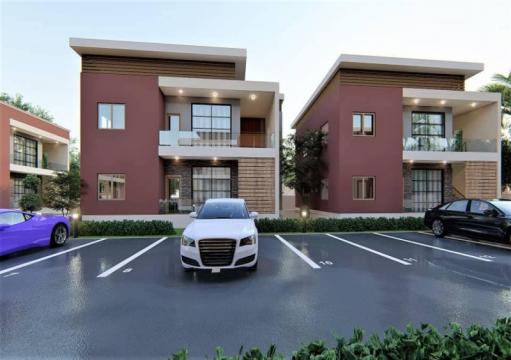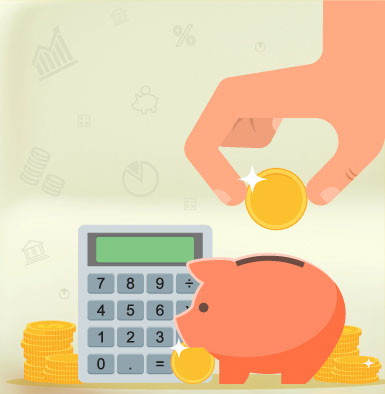The Pros And Cons Of Buying Vs. Renting A Property In Ghana
The Pros And Cons Of Buying Vs. Renting A Property In Ghana

Buying a home in Ghana has almost always been part of the Ghanaian dream. In Ghana, deciding whether to buy or rent a property becomes a significant choice that has an impact on each home buyer's financial situation, way of life, and personal objectives.
Whether you're a Ghanaian resident or an expatriate considering settling in this vibrant nation, one important decision awaits you: Should you buy or rent a property? The choice between buying and renting a property in Ghana is a significant one, with financial, lifestyle, and long-term implications.
To help you navigate this decision-making process, we will explore the pros and cons of each option. By understanding the advantages and disadvantages, you can make an informed choice that aligns with your needs, preferences, and goals.
Pros of Buying a Property in Ghana
1. Long-term Investment
Historically, real estate properties tend to appreciate in value over the long term. While short-term fluctuations can occur, owning a home generally provides the potential for long-term growth in its market value. This appreciation can be advantageous when it comes to building wealth and financial stability.
When you buy a home with a mortgage, you gradually build equity as you make mortgage payments. Equity is the difference between the property's market value and the remaining mortgage balance. With each payment, you increase your ownership stake in the property, effectively saving and building wealth over time.
2. Stability and Ownership
Homeownership provides a sense of stability and security. When you own a home, you have control over your living situation, and you don't have to worry about frequent moves or the possibility of your landlord deciding to sell the property or terminate your lease. This stability can be particularly valuable for individuals and families looking for long-term stability and a place to call their own.
Unlike renting, where landlords may increase rent at the end of each lease term, homeownership provides more stability in housing costs. With a fixed-rate mortgage, your monthly mortgage payments remain constant throughout the loan term, allowing you to plan your budget more effectively. This stability can provide peace of mind and help you better manage your finances in the long run.
3. Financial Benefits
When you buy a home with a mortgage, each mortgage payment you make contributes to building equity in the property. Equity is the difference between the market value of the home and the remaining mortgage balance. As you pay down the mortgage over time, your equity increases, effectively building wealth and increasing your net worth.
Real estate has historically appreciated in value over the long term. While there can be short-term fluctuations, owning a home provides the potential for your property to increase in value over time. This appreciation can result in a substantial financial gain when you decide to sell the property in the future.
4. Complete Freedom
When you own a home in Ghana, you have the freedom to customize and personalize your living space according to your preferences and needs. You can make renovations, paint walls, add fixtures, and make any modifications you desire without needing permission from a landlord. This level of freedom allows you to create a living environment that truly reflects your style and enhances your comfort.
Cons of Buying a Property in Ghana
1. Financial Commitment
Purchasing a property in Ghana often requires a substantial upfront investment, including a down payment and associated costs. The responsibility of a mortgage and potential interest rates can impose a significant financial commitment.
2. Maintenance and Repairs
Homeowners bear the responsibility of property maintenance and repairs, which can be time-consuming and costly. The need to allocate funds and time for upkeep is an essential consideration when buying a property in Ghana.
3. Limited Flexibility
Buying a property in Ghana reduces your flexibility to relocate or change living arrangements compared to renting. Also, selling a property in Ghana can be challenging, and market fluctuations may impact your ability to recoup your investment.
Pros of Renting a Property in Ghana
1. Flexibility and Mobility
Renting a home in Ghana offers flexibility, allowing you to easily relocate or adapt to changing circumstances. You have the freedom to choose different rental properties based on your preferences, work location, or lifestyle changes.
2. Lower Initial Costs
Renting a property in Ghana typically requires lower upfront costs compared to buying, as there's no need for a substantial down payment or associated fees. Monthly rental expenses may also be lower than mortgage payments, depending on the property and location.
3. Limited Responsibility
Home renters in Ghana are relieved of the burden of property maintenance and repairs, as these responsibilities typically fall on the landlord or property management. Renting an apartment in Ghana offers convenience, as you can contact the landlord or property management for any issues or repairs needed.
Cons of Renting a Property in Ghana
1. Lack of Equity
Renting a house in Ghana does not allow you to build equity over time, as you do not own the property. The amount you pay in rent payments does not provide long-term financial benefits or potential capital appreciation.
2. Limited Control and Personalization
When you rent a house in Ghana you're faced with restrictions on modifying or personalizing the property to suit your preferences. The landlord holds the power to sell the property, change rental terms, or evict you at any time, potentially impacting your living arrangements.
3. Uncertainty and Possible Relocation:
Lease renewals and rental terms are subject to uncertainty, and you may face the need to relocate at the end of a lease. Finding suitable rental options, especially in competitive markets, can be challenging.
Is Buying a Home Better Than Renting in Ghana?
It is not always the case that buying a home is better than renting. In certain locations renting a home is considered a better option than buying one in Ghana. When deciding whether to buy or rent a home in Ghana, it is frequently quite helpful to take into account the price-to-rent ratio.
The price-to-rent ratio is used to ascertain whether buying or renting a home in a particular location is financially feasible. The rule of thumb you should follow is that buying a home is more advantageous than renting on the market when the price-to-rent ratio is lower. A larger ratio signifies that rentals are higher than home prices, suggesting that renting would be a better choice.
However, buying a home can be cheaper than renting in the long run for the following reasons:
-
When you rent, you are essentially paying someone else's mortgage and not building any equity. In contrast, when you buy a home, your monthly mortgage payments contribute to building equity in the property. Over time, this equity becomes an asset that you can tap into or use for future investments.
-
Rent prices can increase over time due to inflation, changes in the rental market, or the landlord's discretion. On the other hand, if you have a fixed-rate mortgage, your monthly mortgage payments remain constant throughout the loan term. This stability in housing costs allows you to plan your budget more effectively and avoid unexpected rent hikes.
-
Homeownership often comes with tax advantages that can help reduce your overall tax liability. For example, you may be eligible to deduct mortgage interest and property taxes from your annual income tax return. These deductions can result in significant tax savings, making owning a home more cost-effective compared to renting.
-
While not guaranteed, real estate properties generally have the potential to appreciate in value over time. By owning a home, you have the opportunity to benefit from any increase in the property's value. This appreciation can offset the costs of homeownership and potentially lead to a profit when you decide to sell the property.
Conclusion
Choosing between buying and renting a property in Ghana requires careful consideration of the pros and cons associated with each option. Buying offers long-term investment potential, stability, and financial benefits, but it comes with a significant financial commitment and reduced flexibility.
On the other hand, renting provides flexibility, lower initial costs, and limited responsibility, but lacks equity building and control over the property. Ultimately, the decision should align with your financial goals, lifestyle preferences, and long-term plans.
Consider your circumstances, weigh the factors discussed, and make an informed choice that suits your unique needs. Whether you choose to buy or rent, Ghana's real estate market offers exciting opportunities to find a place to call home in this vibrant and dynamic country.

 French
French




